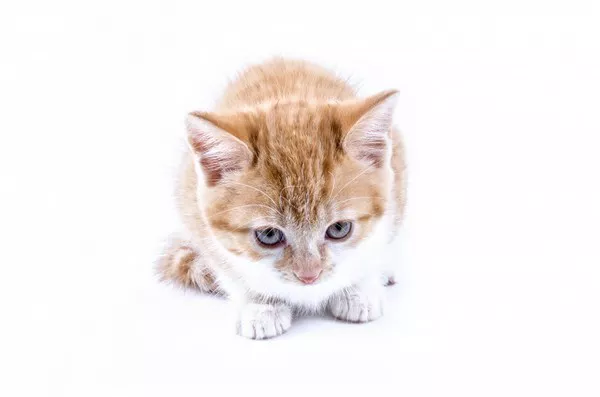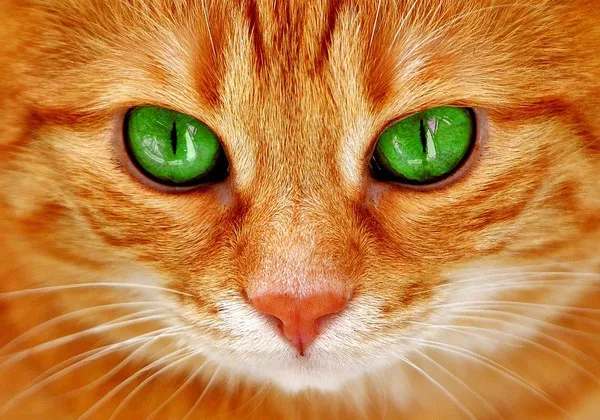Cats are renowned for their discerning palates and selective eating habits. While they may seem curious about various foods, not everything is appetizing to our feline friends. As responsible pet owners, it’s crucial to understand which foods cats find repulsive or even harmful. This knowledge helps us provide a safe and enjoyable dining experience for our beloved companions.
In this comprehensive guide, we’ll delve into the top 10 foods that cats typically detest. From strong odors to unpalatable textures, we’ll explore the reasons behind their aversion and discuss potential health risks associated with these foods. By gaining insight into our cats’ preferences, we can ensure they lead healthy, content lives.
10 Most Annoying Foods For Cats
1. Onions and Garlic:
Onions and garlic, common ingredients in many human dishes, are highly toxic to cats. These aromatic vegetables contain compounds that can cause oxidative damage to feline red blood cells, leading to a condition known as hemolytic anemia. Even small amounts of onion or garlic can pose a significant risk to cats, potentially resulting in weakness, lethargy, vomiting, and breathing difficulties.
Additionally, these pungent ingredients impart strong odors and flavors that cats find repulsive. Cats rely heavily on their sense of smell when assessing food, and the intense aroma of onions and garlic is likely to deter them from consuming anything tainted with these substances. As responsible pet owners, it’s crucial to keep all dishes containing onions and garlic safely out of reach of curious felines.
2. Citrus Fruits:
While humans may enjoy the tangy sweetness of citrus fruits like oranges, lemons, and grapefruits, cats are not fans of these acidic treats. Citrus fruits contain essential oils and compounds such as limonene and linalool, which are toxic to cats and can cause gastrointestinal upset and even central nervous system depression if ingested in large quantities.
Moreover, cats are particularly sensitive to strong odors, and the potent aroma of citrus fruits is likely to repel them. Even the scent of citrus essential oils, commonly used in household cleaners and air fresheners, can be enough to deter cats from approaching certain areas. To ensure your cat’s safety and comfort, avoid offering them any citrus fruits or products containing citrus extracts.
3. Dairy Products:
Contrary to popular belief, most adult cats are lactose intolerant and lack the necessary enzymes to digest lactose, the sugar found in dairy products. While kittens produce lactase, the enzyme required to break down lactose in their mother’s milk, this production typically decreases after weaning. As a result, adult cats may experience digestive discomfort, including diarrhea and abdominal pain, if they consume dairy products.
While cats may be drawn to the smell and taste of milk, cream, and cheese, indulging in these treats can lead to unpleasant gastrointestinal symptoms. Instead of offering dairy products, provide your cat with fresh water and species-appropriate nutrition formulated specifically for feline dietary needs.
4. Spicy Foods:
Spicy foods, seasoned with ingredients like chili peppers, cayenne pepper, or hot sauce, are not only unappealing to cats but can also be harmful to their delicate digestive systems. Cats lack taste receptors for detecting capsaicin, the compound responsible for the fiery heat in spicy foods, making these dishes unpalatable and potentially irritating to their mouths and gastrointestinal tracts.
Moreover, spicy foods often contain high levels of sodium and other seasonings that can disrupt a cat’s electrolyte balance and lead to dehydration or sodium ion poisoning. It’s essential to keep all spicy foods away from cats and ensure they have access to a balanced diet suitable for their nutritional needs.
5. Raw Eggs:
While eggs are a rich source of protein and essential nutrients, raw eggs pose significant health risks for cats due to the potential presence of Salmonella and other harmful bacteria. Raw egg whites contain avidin, a protein that binds to biotin (vitamin B7), inhibiting its absorption and potentially leading to biotin deficiency in cats.
Furthermore, raw egg yolks may contain harmful bacteria that can cause food poisoning and gastrointestinal infections. Cooking eggs thoroughly eliminates the risk of bacterial contamination, making them safe for occasional consumption as part of a balanced diet. However, it’s best to avoid feeding raw eggs to cats altogether to prevent potential health complications.
6. Alcohol:
Alcohol, even in small amounts, is extremely toxic to cats and can cause severe central nervous system depression, respiratory distress, tremors, and even coma or death. Cats lack the necessary enzymes to metabolize alcohol efficiently, leading to rapid absorption and accumulation of toxic by-products in their bloodstream.
Additionally, the strong odor and bitter taste of alcohol are likely to deter cats from consuming any alcoholic beverages. As responsible pet owners, it’s crucial to keep all alcoholic beverages securely stored away from curious felines and seek immediate veterinary attention if accidental ingestion occurs.
7. Raw Fish:
While cats may be known for their affinity for fish, raw fish poses several health risks that make it unsuitable for regular consumption. Raw fish, particularly freshwater fish like salmon, trout, and catfish, may contain parasites such as flukes and tapeworms, as well as harmful bacteria like Salmonella and Listeria.
Moreover, raw fish contains an enzyme called thiaminase, which breaks down thiamine (vitamin B1), leading to thiamine deficiency in cats. Thiamine deficiency can cause neurological symptoms such as seizures, weakness, and loss of coordination, posing serious health risks to affected cats.
Instead of offering raw fish, opt for commercially prepared cat food formulated to meet feline nutritional requirements and ensure your cat’s health and well-being.
8. Caffeine:
Caffeine, commonly found in coffee, tea, energy drinks, and certain medications, is highly toxic to cats and can cause rapid heartbeat, tremors, seizures, and even death if ingested in sufficient quantities. Cats are much more sensitive to caffeine than humans, and even small amounts can have severe effects on their central nervous and cardiovascular systems.
Additionally, the bitter taste and strong odor of caffeine-containing products are likely to deter cats from consuming them voluntarily. As responsible pet owners, it’s crucial to keep all caffeine-containing substances securely stored away from curious felines and seek immediate veterinary attention if accidental ingestion occurs.
9. Raw Dough:
Raw dough, particularly bread dough made with yeast, poses several health risks for cats and should be kept out of their reach at all times. When ingested, raw dough can expand in the warm, moist environment of a cat’s stomach, leading to bloating, abdominal discomfort, and potential gastric torsion or rupture.
Moreover, yeast produces alcohol as a by-product of fermentation, and ingestion of raw dough containing yeast can lead to alcohol poisoning in cats. The combination of rapid yeast fermentation and alcohol production can cause severe gastrointestinal symptoms and central nervous system depression, posing serious health risks to affected cats.
To prevent accidental ingestion, securely store all raw dough and baked goods containing yeast away from curious felines and seek immediate veterinary attention if ingestion occurs.
10. Bitter Vegetables:
While cats are obligate carnivores and thrive on a diet rich in animal proteins, some vegetables may be unappealing or even repulsive to them due to their bitter taste and fibrous texture. Vegetables such as broccoli, kale, Brussels sprouts, and spinach contain compounds known as glucosinolates, which impart a bitter flavor and may be unpalatable to cats.
Moreover, cats lack the necessary enzymes to break down plant matter efficiently, making it challenging for them to derive significant nutritional benefit from vegetables. While small amounts of cooked, mashed vegetables may be safely incorporated into a cat’s diet as an occasional treat, it’s essential to focus primarily on providing species-appropriate nutrition formulated to meet feline dietary requirements.
See Also: Can I Make Homemade Cat Food?
Conclusion:
Understanding the foods that cats hate the most is essential for promoting their health, well-being, and happiness. By avoiding potentially harmful or unpalatable foods and offering a balanced diet tailored to their nutritional needs, we can ensure that our feline companions thrive and lead fulfilling lives. As responsible pet owners, it’s our duty to prioritize our cats’ dietary preferences and provide them with the care and attention they deserve.



























